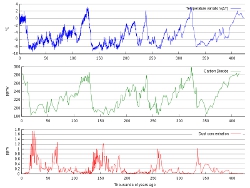 |
**__Related stories:__***linkurl:Publish or post?;http://www.the-scientist.com/blog/display/57613/
[9th August 2010]*linkurl:I Hate Your Paper;http://www.the-scientist.com/2010/8/1/36/1/
[August 2010]*linkurl:Peer review trickery?;http://www.the-scientist.com/blog/display/57130/
[2nd February 2010]*linkurl:New site pits 'published' vs. 'posted';http://www.the-scientist.com/news/display/53294/
[19th June 2007]


















